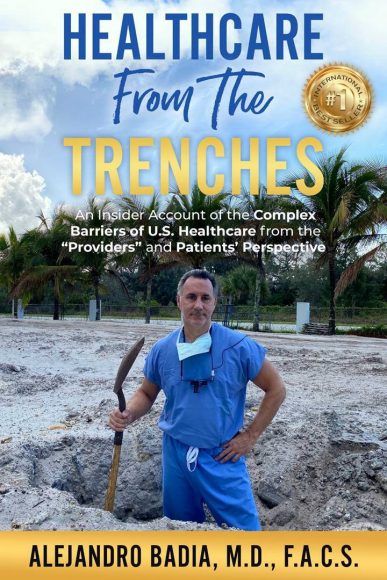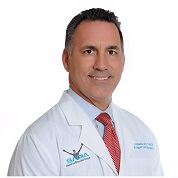Alejandro Badia, M.D., www.drbadia.com is a board-certified hand and upper extremity orthopedic surgeon with the Badia Hand to Shoulder Center in Florida, author of the new book “Healthcare From the Trenches” and a frequent contributor to WAG. So we were delighted that he took the time to answer a few questions on the subject of the high cost of becoming a doctor today:
Dr. Badia, a recent U.S. News & World Report article talked about the cost of becoming a doctor, but what about the emotional as well as the financial costs in the age of the coronavirus, with doctors feeling overwhelmed or having to downsize or even close their practices? Do you think these will dissuade students from attending medical school?
“History is replete with episodic encounters with a variety of illnesses, often infectious, that naturally bring concern and even hysteria, some more warranted than others. A true healer will not be dissuaded by this but rather want to help on either the treatment side, or the prevention side, i.e. epidemiology, virology, research, etc.
“The greater concern is the ‘epidemic’ of bureaucratic/administrative/legal interference in the classic doctor-patient paradigm that is a major reason that most physicians no longer recommend their own children pursue a medical career. This is what we need to address as the current viral pandemic will soon be historical. Health-care delivery challenges are what should concern us more and may dissuade our brightest from pursuing the rigors of medical education and training.”
There is beyond the financial cost and the emotional toll a political one with the profession seemingly under siege as the virus becomes more and more politicized. Do you think this affects doctors on the frontlines or would put science students off from becoming doctors?
“Politics has always been present but certainly more polarized currently. I do not imagine that politics will interfere with one’s career choice unless one particular party will threaten the viability of the health-care professions. There is, however, valid concerns about the increasing interest in ‘Medicare for All’ since most young physicians understand that full government control of health-care brings its own challenges.”
Will the increasing use of telemedicine make the office visit effete?
“No. Telemedicine will have a greater role for allowing easier and more immediate clinician/patient communication, such as discussing test results, or routine follow-up visits after an effective procedure but is no substitute for the special personal interaction between a doctor and patient. Physical examination has been diminished due to our reliance on certain tests, i.e. MRI imaging, but is crucial to pick up subtle findings that experience will detect. Certainly, office visits will become increasingly efficient and focused on initial care and resolution of complex problems.”
What role has the consolidation and commercialization of hospitals played in dampening ardor for the medical profession? What about high insurance costs for both doctor and patient?
“The growth of large health-care systems has often diminished the role of physicians to become expendable players in an impersonal environment that physicians increasingly resent. This will likely be temporary and there are already signs of pushback from the current ‘employed doctors.’ While many will succumb to this, others value the freedom of not working ‘on the clock’ and will realize that they should not be pawns in health care but rather direct care.
“Insurance costs have become outrageous and both patient and physician realize that increasing patient responsibility to bear a major cost of care, sans catastrophic conditions/injuries, is on the upswing and we will likely see this forcing transparency in the medical cost arena. This is part of the consumerization of health care and will paradoxically drive down costs as we take third parties, who contribute nothing to actual care, out of the equation of healthcare delivery.
With all the challenges facing the profession, what still gives you joy?
“Caring for my fellow man, in my case, restoring function and alleviating pain in the critical hand and upper extremity. For others, saving a patient’s life is reward enough. The issue is that the education and time spent on these endeavors must be commensurate with reimbursement, like any other honored profession. Despite our challenges, most physicians put patients’ first and that is the primary reason there remains high job satisfaction. Furthermore, this very fact is what allows others to prey upon a physician’s altruism and place the barriers to deliver care that frustrates doctors so much. Fortunately, there is a strong movement afoot to no longer tolerate this. Some call it Healthcare 3.0.”


